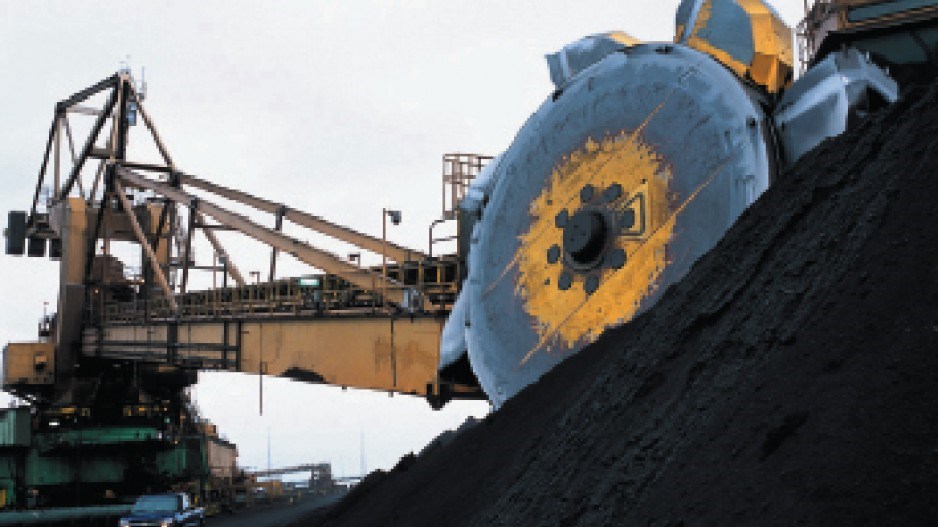Municipal politicians are overstepping their jurisdictional boundaries in pushing for more public consultation on proposed coal terminal expansions at Port Metro Vancouver(PMV), according to local business groups.
“It’s a national port, and maybe it’s appropriate for the local governments to stick to their knitting and comment on those things that they have responsibility for,” said John Winter.
The president and CEO of the BC Chamber of Commerce was reacting to local politicians’ involvement in an anti-coal export push that’s emerged in the past few weeks.
That push has followed a recent rise in opposition from environmental groups to proposed expansions of coal export facilities at North Vancouver’s Neptune Terminals and Surrey’s Fraser Surrey Docks.
Vancouver politicians have now thrown their weight behind the lobby, with Vancouver Mayor Gregor Robertson urging port boss Robin Silvester in a letter to consult further on the projects before deciding on permits for the expansion, and Vancouver councillor and BC Green Party co-founder Adriane Carr proposing – and winning support for – a similar motion at council.
The motion Vancouver council endorsed requests that the mayor ask PMV to “incorporate consideration of global climate change and local air quality impacts of project proposals into [its] decision-making processes.”
But both business groups and PMV are saying there’s a jurisdictional problem with local politicians trying to drive PMV’s agenda.
Winter said local municipalities should be consulted regarding local impacts of a terminal project, such as how it might affect transportation or other areas of community concern. But he said it’s not the job of municipalities to direct what’s being shipped.
Winter added that local municipalities reap taxes from ports and are “primary beneficiaries” of the infrastructure.
Greg D’Avignon, president and CEO of the Business Council of British Columbia, emphasized that upper levels of government set strategic direction on economic and environmental issues for “North America’s largest tonnage port.”
He said citizens can participate in those decisions through provincial and federal elected officials and by participating in provincial and federal consultation.
“Municipalities’ resources are under pressure and the addition of potentially redundant processes risk creating a patchwork quilt of economic and environmental standards over the relatively small geographical area in which the port operates.”
Duncan Wilson, PMV’s vice-president of corporate social responsibility, said the port has already consulted extensively with local communities about how to mitigate any impacts of the projects. He said PMV would support a broader public discussion about whether Canada should be exporting coal but that he doesn’t see that as a port debate.
“It’s a debate that needs to happen between Canadians and the government of Canada, because fundamentally the government of Canada makes decisions in terms of our trade policy and what commodities we’re trading – not the port of Vancouver.”
Wilson suggested that a broader debate could be led by the BCBC or the Vancouver Board of Trade in partnership with an environmental group.
But he said the port wouldn’t put its permitting process on hold for what could be a multi-year debate.
“If somebody’s building a house, a city’s not going to hold up their building permit because they want to have a dialogue about sustainable forestry.” •




